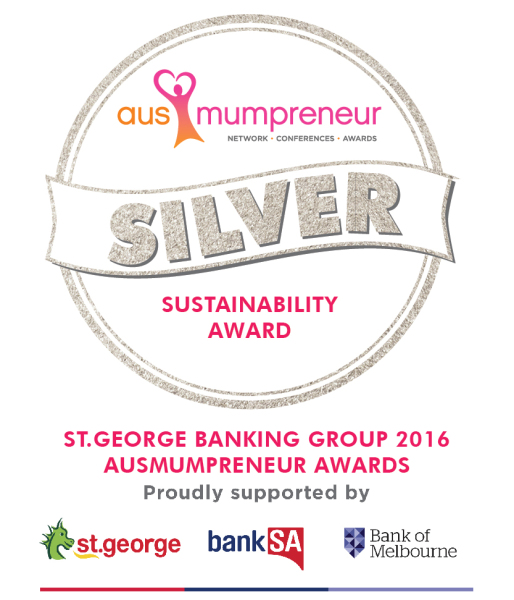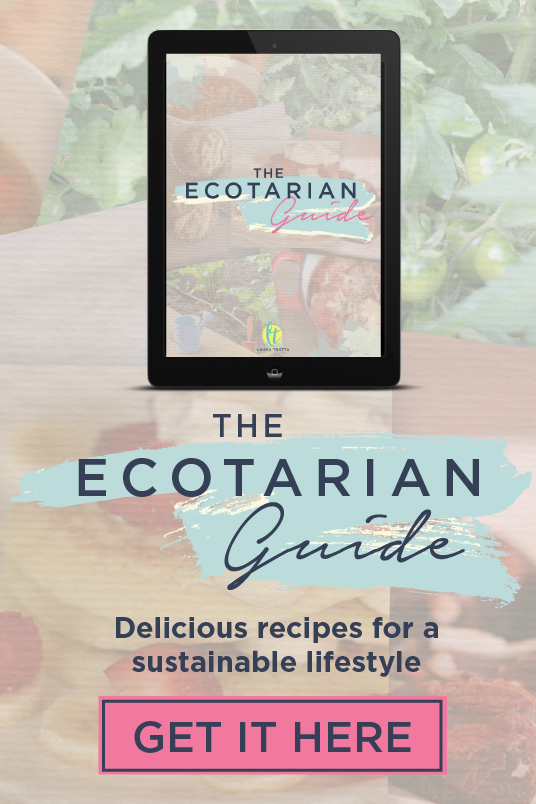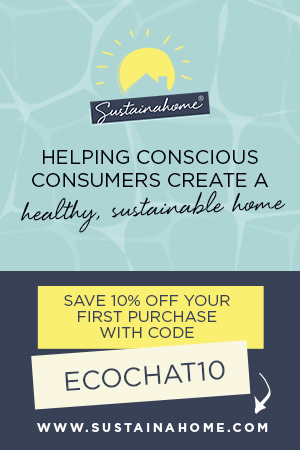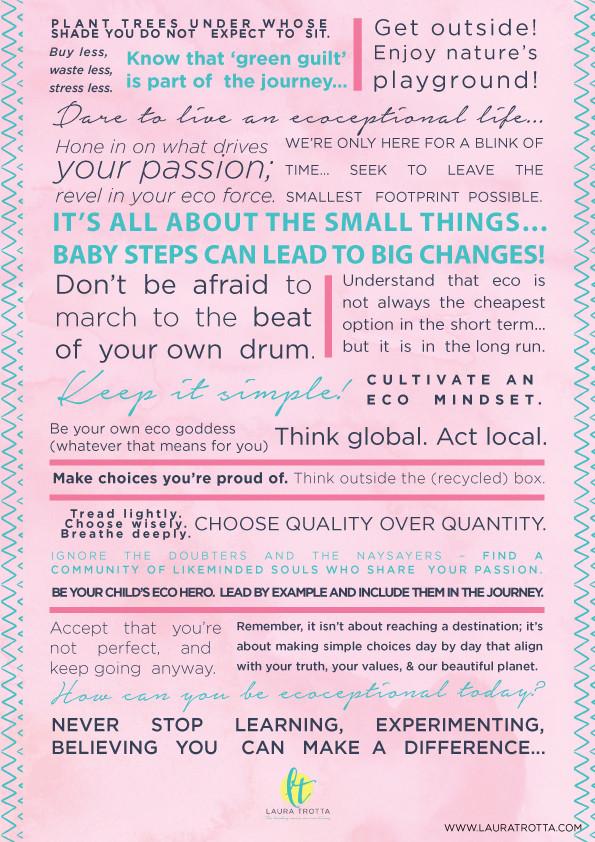If you’re looking for an internet search engine that gives back, look no further than Ecosia. Ecosia is quite literally, the search engine that plants trees. Ecosia donates 80% of its profits to non-profit organisations that focus on reforestation, considers itself a social business, is CO2-negative, supports full financial transparency and protects the privacy of its users.
In this episode Hannah Wickes will share how Ecosia came about, how it works and how you can easily make the switch to ensure your web surfing is creating change for good.
Podcast: Play In New Window
Subscribe in Apple Podcasts | Stitcher | Spotify
welcome to eco chat hannah. would you mind sharing how ecosia evolved. How did the wild idea come about and what did the journey from idea to platform involve ?
Hannah:
It’s a complex journey because Ecosia is an odd beast – it’s a search engine on the one hand, and then a tree planning organisation on the other, and a social business.
It started 11 years ago with Christian, our founder. And the idea came when he was travelling. He’s from Germany and was travelling through Nepal and then other parts of the world. He was seeing mass deforestation and the impacts of that. And his thinking was, what can I do here to fix that problem? How can I tackle that? He’s knew he was going to need to find a way to get the money needed to finance tree planting and reforestation efforts.
And he was like, well, what business models are working right now? From the get go, he was already thinking of how can I use business for this rather than charity, which is the crucial difference with Ecosia – we’re not a charity asking for donations for our work, which is an excellent way of doing things. For us it was about being a social business. So it was like, well, search engines seem to be doing pretty well. There’s a giant search engine beginning with G that I won’t mentioned, but they were very profitable. And it was like, what if we were to make money like that, but then not keep the money for shareholders? What if we were to channel it into into different tree planning work around the globe. And so that was the germ of the idea. But it’s also not hugely popular with potential investor, it it has taken a long time to ramp up. Ecosia has been around for 11 years, but it grew super slowly at the beginning. And it’s only in the past four years, I would say it’s really started to scale. And that’s when we’ve seen now we have over 15 million users and lots of different countries, including Australia. And that’s where we’re able to plant trees at scale. So it’s really grown into itself.
How does the platform work? How does the way we search our information online enable the planting of trees?
Hannah:
It’s really interesting, because they’re two completely separate concepts that have only been brought together by a crazy idea. So the concept of a search engine where you can find your answer to your question is quite a simple one, but incredibly complex tech wise. So you have a search engine and you type in your question to ask the internet. When you do that, a whole bunch of results come up telling you the answer to your question.
So lets say you were looking at the best place to stay in Lorne in Australia. Your search results will should you a few local hotels that you could stay in, or different places that you could visit. Some of those results right at the top of the page will be ads which will make revenue if someone clicks on it. The advertisers have paid us for that traffic and that’s how we make revenue. Plus it’s quite unintrusive. We’re not yelling at you to click on things and have big visual ads in any way.
It’s exactly the same way other big search engines make thier money. It’s just our profit isn’t for shareholders and founders, it’s very much for our tree planting projects. We are always thinking about trees, how many more trees can we plant ? Where can we plant them ? Will this activity enable us to plant more trees or less trees? It’s like we have a different currency in the way we think about our business and how it operates.
How does the tree planting aspect of it work? Do you grow trees globally or just going region to region? How do you decide where to channel your efforts?
Hannah:
That’s such a big question, and we have a team of experts helping us coordinate our tree planting globally. We work with a lot of different partners that share the guiding principle of ‘planet over profit.’ So always thinking about not just where would the trees help the environment. But where are the trees going to help people and local communities and have that impact as well.
So we plant in close to 30 countries and there’s lots of individual locations where we’re planting in Australia. We’re helping plant forests up in the Byron Bay area and along the northern New South Wales coast, particularly on areas that we’ve cleared in the past for dairy farming, but no longer being used for that. So each project and each country, we’re like, okay, where are the trees most needed? What can we do? And do we have a partner on the ground who can really help us do this? So everything’s quite different. We look for a partner who also is going to report back to us on the trees. So we do a lot of satellite imagery, a lot of geotagging of the trees. Were not, as a tech company, very interested in user data, we are a very privacy focused search engine. We don’t want that data. But we do want the tree data. So we want to know where the trees are. We want maps of the trees, you want to see basically from the air, what the change is over time. And we select projects based on numerous different things. And we have a lot of different planning techniques. So in Madagascar, for example, it’s mangroves, which are way easier to plant. So we plant along the coastline to stop erosion of the island into the sea and it builds a very unique habitat that’s able to store huge amounts of carbon far more than your normal forest.
There’s a huge range of different projects, different partners, we often look for partners and organisations that are run by women, and women’s collectives, because those projects often tend to work. And it’s really a way of giving back as well. So we’re always on the hunt for new projects and what we can do at scale. But we also prioritise areas that are really feeling the effects of climate change already.
So where is it getting hot ? Where is there less water? Where is it going to be more and more difficult in the years to come? And how countries help pause that or pull us back from the brink of climate change and its impacts. So you can locally change even weather patterns to some extent if you start planting trees at scale, which is a really cool impact. I never thought of planting mangroves as such, but they help with coastal erosion or at least slow it down, which has an impact of climate change.
We have other really cool projects like the one we have in Indonesia, where there has been mass clearances for palm oil plantations. We wondered what could be done to bring rainforests back? And also what could be done to provide livelihoods for local communities that isn’t reliant on palm oil? Like what other products could be grown that are a native vegetation and can also provide an income? Each location when we plant there’s a whole bunch of requirements to look at. We look at what’s everyone doing here? Why did the trees disappear in the first place? And how can we bring them back in a way that’s sustainable? And how can we also provide income? How can we have the flow on effects from the tree planning? Which is really important. You don’t want to just plant the trees to have that resource just taken down again. And for us, we track the trees long term, so we’re not interested in just planting the tree and walking away. So we look at it and monitor it for three years, and often well beyond that with our partners. So we expect a lot of photographic proof and we also visit the projects regulary which has been a lot harder with Covid.
What are some of the other changes we can make to our online behaviours/activities to reduce our environmental footprint?
Hannah:
This is a really interesting one. The way you are using the internet, could be leaving a negative footprint. You can look at what the servers are running on for an internet site, although that’s an incredibly technical one. But look at what service they are providing, and whether the company itself is renewable and how they are running their tech. For Ecosia, we are at 300% renewable now. Which means we produce all of the green energy that we need to run a search engine. We have solar panels across a lot of different buildings in Germany. That extra energy we produce we put back into the grid which means we are running on more than carbon neutral. It means we are basically compensating for businesses who haven’t made the switch to renewable right now. I would that that’s a really important one, but it’s incredibly difficult to find that information online.
That is one of the struggles, it’s easy to also forget why we use the internet frequently. And often it’s about e commerce. So it’s about what you’re choosing to do and spend on online. And those decisions are really important because that decision of where that thing is shipping from and how it’s being produced, is actually the biggest topic. So looking at that, and also finding ways to lessen your consumption or lessen the fast turnover of what you’re buying. So if you’re buying something that’s going to get broken, and isn’t high quality, `that is also going to have a massive impact. And that it’s easy to think, oh, that’s not connected to my consumption online. But if you’re using a big ecommerce provider, frequently, then you really need to think about the impacts of that company as well. So it’s a few degrees removed. But I think it’s one of the biggest impacts we can have.
Laura:
I agree. And that’s great that you raised it because I haven’t really heard it discussed too much. And you think about it, if you’re just going to your local shops, you’re only buying a few different items at one time, and then walking back home with these items. But if you were to purchase them online, from different suppliers, there’d be all individual parcels that come in the mail, which take an individual courier trip to get to your house.
Hannah:
Yeah, absolutely. And I think there’s always an argument, even if you are using a search engine, to buy local as much as you can. So try and find the local providers, try and find the local businesses that you can work with. And think about the impacts on your footprint of those different choices. Personally, I think that’s one of the biggest things you can do online is change your online buying and shopping behaviours, and shift to different greener providers, and also ones within a more local reach of you as well.
What impact has Ecosia made since launch?
Hannah:
If you take a look at www.ecosia.org we have a tree counter that tells you how many trees have been funded by Ecosia users. At the moment (March 2021) its at 121 million. These trees have been planted across all our different projects and if you are interested in the break down by country you can read our blog with all the details. We also publish financial reports every month. It’s not normal for a company to make publicly available these reports, but we find our users are interested to see how much revenue has been generated each month, and which project these funds will be directed too. It’s really important for us to be transparent.
In July 2020 we were at 100 million trees planted, and the year before was 50 million, so the growth has really accelerated. And that’s happened as people have realised the extent of the climate crisis and what we’re facing. So as people realise what the trajectory we’re on right now and what that means, they are increasingly wanting to find solutions. And it’s very disempowering for the average person, like, well, what can I do, where I can have impact like I can, I’ll try and eat less meat, I’ll stop eating this thing, I’ll stop flying, or I’ll, I’ll never buy a fast fashion. And I’ll try and do this. And there’s all these actions that were asked as individuals to do. There’s often a level of guilt that comes with that. There’s a lack of hope sometimes as well. Sometimes you can be incredibly like, Okay, this is positive, I’m making a real impact. And then you can go back to be like, but really, what’s it going to do?
If you have a practical solution like Ecosia, where you can just go about your day to day activity, using Ecosia as your search engine, and in return being responsible for planting a tree, it’s incredibly empowering.
How can our listeners get started with using Ecosia?
Hannah:
There are multiple ways you can use Ecosia. On your laptop of computer you can access the internet through your browser (like Safari or Chrome). And within that you can select your search engine by going into Preferences and making Ecosia your default.
The other option, which the majority of our users use, is an extension. So if you go to the Chrome store (or equivalent) you can download an extension that basically changes your search engine and allows you to search anytime your write in the tab across at the top. Each time you search you will be helping Ecosia plant trees.
If you are using an iPhone or Andriod phone, you can switch over too. We have apps you can download and use as your phone search engine. Those apps also have the added bonus of having all our information about tree planting on it so you can keep up to date with what’s happening at Ecosia.
Final Thoughts
Well there you have it! I hope you found this episode useful. For further information on Ecosia and to make the switch today visit ecosia.org and follow Ecosia on Facebook, LinkedIn or Instagram.
If you’re growing an eco business and want support with the digital marketing AND sustainability aspects of your business, I encourage you to check out my Eco Business Collective. Eco Business Collective is where I combine my extensive environmental engineering and business experience to support a growing number of entrepreneurs to make their eco businesses more sustainable and more profitable. Members receive personalised coaching support from me and a network of connections to help them grow a thriving and profitable eco business online. Join now and get started with a 30-day trial.
Over to you!
Have you made the switch over to Ecosia! Comment below when you have!
Like this episode? You’ll also love….
[157] How to Grow a Green Business
[159] How to Become a Carbon Neutral Certified Business
[155] How to Offset Your Carbon Emissions
[147] How Climate Change is Fuelling Bushfires
[67] Climate Change – What it is and Why We Need to do Something About It
- Sustainable Home Design- factors to consider to maximise sustainability - July 28, 2022
- Advantage and Disadvantages of Tiny Houses - May 31, 2022
- How School Strike 4 Climate is Empowering Youth to Fight for Their Future - May 1, 2022

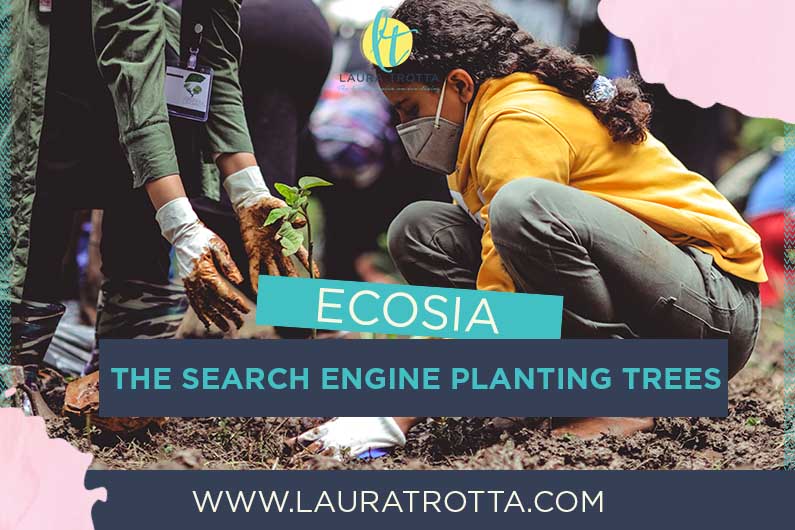
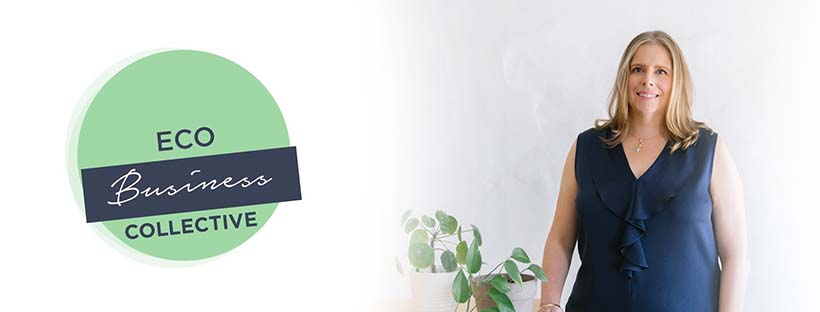
 Laura Trotta is one of Australia’s leading home sustainability experts. She has a Bachelor of Environmental Engineering, a Masters of Science (in Environmental Chemistry) and spent 11 years working as an environmental professional before creating her first online eco business, Sustainababy, in 2009. She has won numerous regional and national awards for her fresh and inspiring take on living an ‘ecoceptional’ life (including most recently winning the Brand South Australia Flinders University Education Award (2015) for the north-west region in SA and silver in the Eco-friendly category of the 2015 Ausmumpreneur Awards). With a regular segment on ABC Radio and with her work featured in publications like Nurture Parenting and My Child Magazine, Laura is an eco thought leader who’s not afraid to challenge the status quo. A passionate believer in addressing the small things to achieve big change, and protecting the planet in practical ways, Laura lives with her husband and two sons in outback South Australia.
Laura Trotta is one of Australia’s leading home sustainability experts. She has a Bachelor of Environmental Engineering, a Masters of Science (in Environmental Chemistry) and spent 11 years working as an environmental professional before creating her first online eco business, Sustainababy, in 2009. She has won numerous regional and national awards for her fresh and inspiring take on living an ‘ecoceptional’ life (including most recently winning the Brand South Australia Flinders University Education Award (2015) for the north-west region in SA and silver in the Eco-friendly category of the 2015 Ausmumpreneur Awards). With a regular segment on ABC Radio and with her work featured in publications like Nurture Parenting and My Child Magazine, Laura is an eco thought leader who’s not afraid to challenge the status quo. A passionate believer in addressing the small things to achieve big change, and protecting the planet in practical ways, Laura lives with her husband and two sons in outback South Australia. 